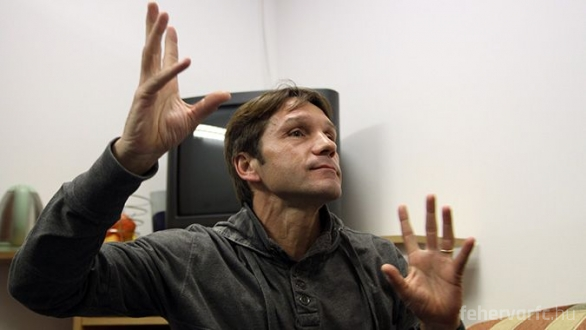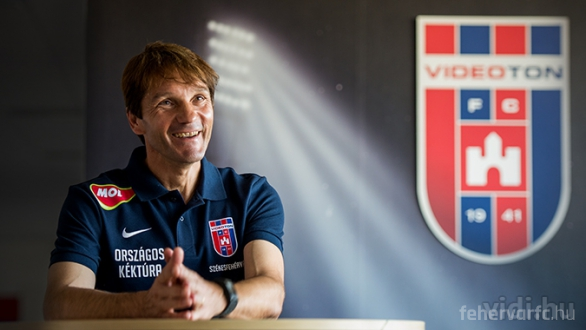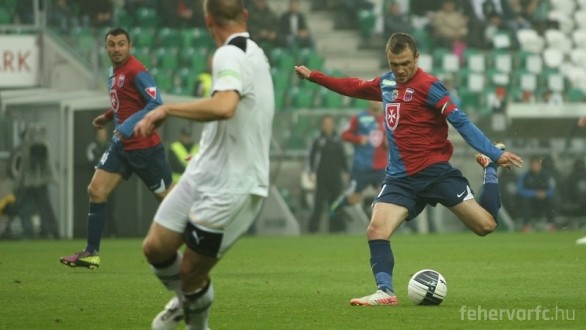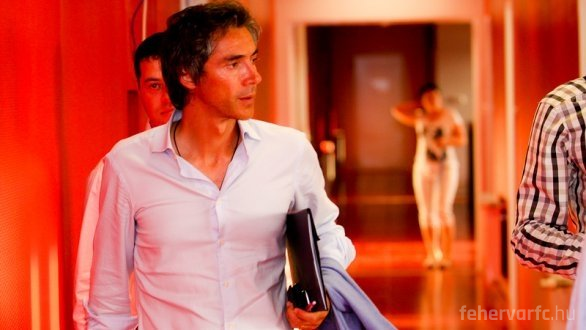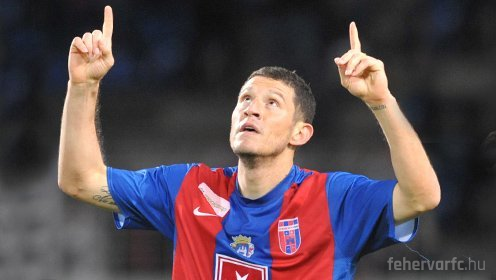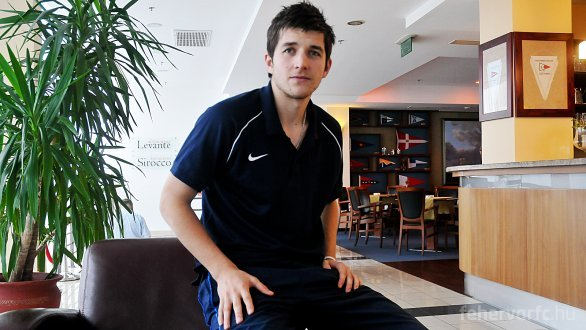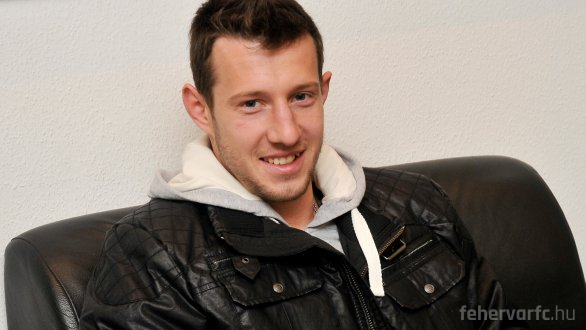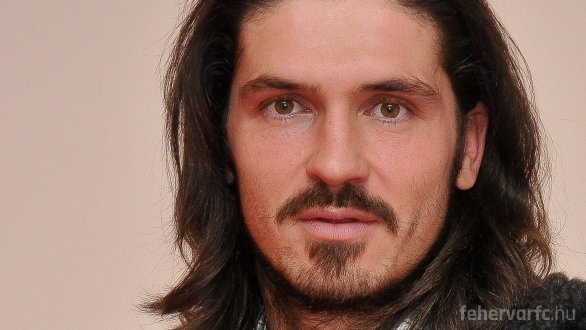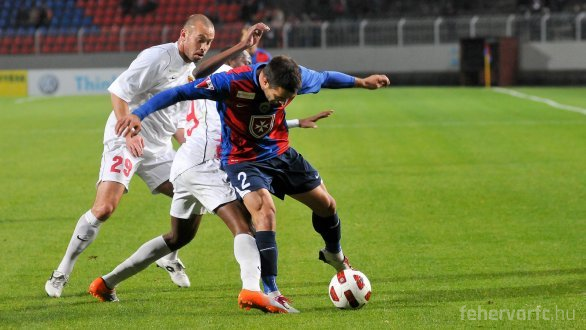In conversation with Paulo Sousa's number two

Your family was here recently, how did they feel in Hungary?
They were here for the second time and it was perfect once again. They were here with me for a month in the summer, and my three sons already have Hungarian friends from that time. They trained at the Videoton youth scheme, and have kept contact ever since, especially on Facebook with the people they got to know. We took advantage of a four day school break to be together once again.
It must be hard as the boss to keep control of a large family when you are separated by a large distance.
Boss? You mean female boss! My wife was always the boss in the family. But thankfully due to new technology, the situation is not that difficult, and we are in daily contact, so the distance is not that tough. It must have been more difficult in the past. I am lucky to have such good children, who listen to what they are told, as they have the will inside them, to be able to create a communucation. This can only work if there is a mutual will between two people to make it happen, and then there can be no obstructions.
I suspect this leads to the connection with the players, which can also include some obstacles, like for example the lack of a common language. If we are talking about Hungarian players, then this is not a problem?
Hungarian is one of the hardest languages, and I cannot even speak it, but I make myself understood to the Hungarian players, which as I have already mentioned is thanks to the joint will. Naturally those most important sayings are already working, which is needed for the job. This helps us to be prepared, so that we can give them everything, and they want to accept this. Then this will make everything work well. I can also be understood by my gestures, and they also know many Spanish words now. There are the bad swearwords, which sometimes flies through the Spanish language.

Yes, I am such a fun person. I do not always like to be centre of attention, but I manage to do this many times. I am lucky, that I love what I do, and this is my life, and I give everything. Ofcourse, I am going to be in a good mood.
Is fun essential to be able to work well?
Of course. If you work with such people, who have continuous negative thoughts, than you will be like them, but you can also hand over positivity. I always want to be able to meet each and every challenge. If that means climbing over a mountain, than I will climb it and not go around it. My life has included several „small mountains” and if you tell yourself that you cannot do it, then you will end up not doing it. I think positively, and I try to see everything, as if I can solve the situation or task.
It is good that you can find such challenges here. How can you react positively to the cold weather, for you who are Spanish?
I will get used to it as I have to. For example, I am almost the only person in the team, who will not be training in tracksuit bottoms. A person adjusts to the area, but it is not that hard for me. I lived in Almeria, where it was very hot, and in the Andies, where there was snow. The main thing is that if there is a target, then I will do everything to achieve it.
A coach has to provide this approach? As what would be good would be, is if the players also want to achieve everything.
I would like this. I am always an optimist, and I worked like this in both the Spanish first and second divisions. With regards to the players, I have worked as a scout, and the most important thing is player knowledge. If you choose someone, I cannot know what he is like as a person. That will come out when you work together, but objectively, this is the most important, that he should be useful on a pitch.
How did you become a coach?
The simplest way possible: I love football, so this is why. If someone finishes their playing career, then they will usually want to stay within football, and I was the same. One method for this, is to become a coach. It will soon be seen whether you are a good or bad one, and there is no secret recipe for this. There are good coaches, and bad, and each one will work differently, just as you will have good and bad players. You can often explain, but a person will only be interested in winning and for those living in sport, you have to adjust to this.
What education or qualification is needed to become a coach?
Three years of theoretical and practical training. We get a three level diploma, and one year is needed to practice for each. It is very hard to complete the school, and just as difficult to find a place to work after. There were 83 of us who took the third level, but only four of us managed to go through the exam. It is also hard to take part in education, if a person has to work in between, while needing a whole year to work through the last diploma. But if you get this diploma, than you can also become a coach at a first division side.
Do you have the ambition inside you, to become a manager at a Spanish first division side?
Ofcourse. I was assistant manager at Espanyol, and manager in the second division. We will see how things work out later. Now my challenge is in Hungary, and I feel very good with it. As to what will happen in many years time, I do not know, perhaps I will take on another project somewhere else, and I will then try to feel good there.
Did this look from the start to be a „good project"?
Yes, completely. The company that I arrived together with, was known to me, so I knew that we would end up working well together. The championship is good, and there is not such a big difference between the teams. I feel that the league table does not reflect the true picture. Of course there are things that are different than back at home, for example the attendances. When we played in the Super cup final at Kecskemet, they told me before the game that there would be many people there. I asked how many, and they said 5,000. I was surprised: If that is a lot, what is few? At Espanyol, a small crowd was around 25,000. We played infront of 100,000 at Barcelona. This is what I miss a bit. Now there will be a long winter break, and one thing that worries me is the lack of information, as to what condition the pitches will be, and how the players will change, and these are quite unique circumstances here.
However, if the company here is really good, then I would think that you spend lots of your spare time together with Paulo and Nacho.
Yes, we usually talk about women.(Laughter). That was a joke. We always talk about football. Then when the family are here, we have joint programs, both here and in Budapest. When the family is not here, than really the only subject is football. The opposition, players, plans and analysis.
Would it not be good to sometimes distance yourself from it?
The reason we talk about it is because we love it. We are professional, and we do not work during working time, as the 24 hours in a day, is spent talking about this, so there is no chance of stopping this.
Do you expect this from your players? Or would it be better for them to sometimes forget about the pitch?
It would be good to give this over to them, so that football should be their lives, if at all we need to give this over to them in the first place. This is such a thing that can be controlled. We need to know how we can improve the game, what advice; tasks would help them to develop more. How can we make use of modern technology? These are what we talk about so much.
Do you see a difference between Hungarian an foreign players?
I think it is in syncron. The Hungarian helps the new arrivals a lot, but at the same time, the Spanish, Portuguese, Brazilians are more open to take in more things. This system works very well, and in the end, Vidi can win with this and the team will be united and strong.
What has been your most pleasing experience in your time in Hungary so far?
Perhaps I would say a general thing: I was surprised just how kind and helpful the people have been. If I am shopping somewhere, and I ask for something, they try to understand me and help. In return I try to always understand them, not only the language, but things here in Hungary and life. I think this is the minimum I can do as a visitor. 
Author: David Rechnitzer

